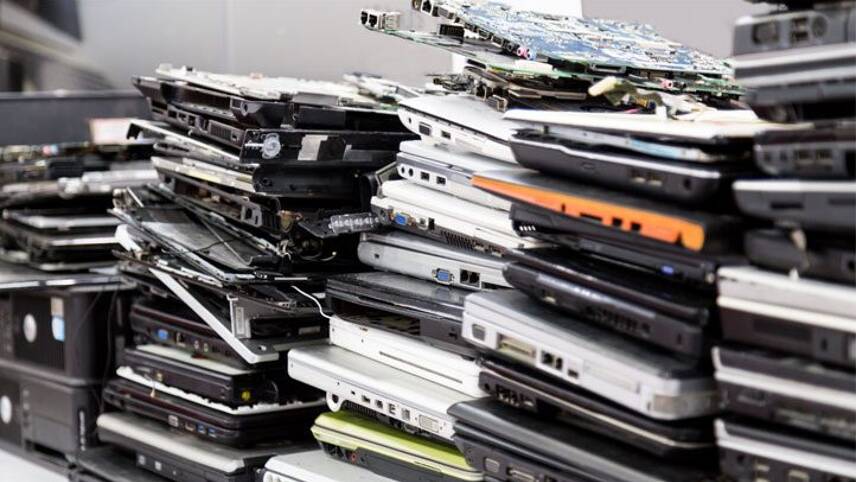Register for free and continue reading
Join our growing army of changemakers and get unlimited access to our premium content

Some 300
That is according to a new report from Material Focus, exploring how the hoarding, landfilling and inefficient recycling of used electricals is letting the metals we will need to provide technologies like wind turbines, solar panels, fuel cells and batteries for vehicles go to waste.
The report, supported by Giraffe Innovation, is based on two online surveys of local authorities and waste contractors in the UK, which assessed their processes for collecting and processing waste electricals. Collectively, the respondents to these surveys represented 80 local councils. These responses were then treated as representative and scaled up to cover the whole UK.
From these calculations, the report reveals, it is likely that more than £13.6m of value is lost to a linear economy for critical raw materials used in electricals each year.
The report outlines that while the UK has made strong progress in extracting gold, silver and palladium from used electronics, much of the recycling is currently conducted overseas. This limits the opportunity to recapture this value domestically and increases the carbon footprint of the materials, due to transport. When all rare earth elements are covered, the recycling rate stands at less than 1%.
According to the report, better recycling processes are needed, as current infrastructure does not tend to target rare earth elements for extraction. As such, the majority of these elements are lost in dust generated in the pre-processing phase. The report also recommends a unified national collection service for used electronics and electricals. Priority items should include desktop PCs, laptops, tablets, mobile phones, screens, monitors and lighting, as they contain significant quantities of rare earth elements.
Delivering these recommendations would also have economic and ethical implications in the global transition for net-zero, the report states. It notes that the global demand for critical raw materials is likely to grow 20 times over by 2030, against a 2010 baseline, as nations work to decarbonise their energy and transport systems.
Material Focus’ executive director Scott Butler said: “This research highlights that those critical raw materials don’t need to be lost, and for the first time shows the investment opportunities in building a circular economy for critical raw materials in the UK. If the UK recycled more lost waste electricals and invested in new waste electricals processing infrastructure, we could capture more of these valuable materials.”
The report from Material Focus comes as the Critical Minerals Association (CMA) is unveiling its Blueprint for the responsible sourcing of critical minerals. The Blueprint explores a future in which critical supply chains accelerate the uptake of recycled materials and – because demand for these materials will be greater than the supply from solely recycled sources – embed the uptake of sustainable procurement practices for virgin materials.
The Blueprint calls on the UK Government to signal its intent to prioritise domestic materials where possible and to assist the development of an ESG rating system for supply chains. It also urges Ministers to clarify plans for creating a strong talent pipeline of professionals with STEM education and skills.
On the private sector side, the Blueprint encourages increased collaboration – particularly internationally. It argues the case for a new central co-ordinating body, tasked with ensuring strong ESG credentials across the metals and mining value chain. Such a body would sit within the Department for Business, Energy and Industrial Strategy (BEIS) and receive input from the private sector, academia and other stakeholders.
Co-chair of the CMA’s circular economy taskforce, Simon Gardner Bond, appeared on edie’s Sustainable Business Covered podcast earlier this year for an episode exploring the link between the transition to net-zero and the transition to a circular economy. You can stream that episode, sponsored by Zero Waste Scotland, here.
Join the conversation at edie’s Earth Overshoot Day webinar
Thursday 29 July 2021 marks Earth Overshoot Day – the calendar date at which humanity will have used up nature’s resource budget for the entire year.
To mark the occasion and help organisations of all sizes and sectors accelerate the transition to a circular economy, edie is hosting a free webinar at 1PM BST. Hosted in association with Centrica Business Solutions, the hour-long session will feature expert speakers from Elvis & Kresse, ReLondon and Centrica Business Solutions.
For a full agenda and to register for the webinar, click here.
Sarah George


Please login or Register to leave a comment.